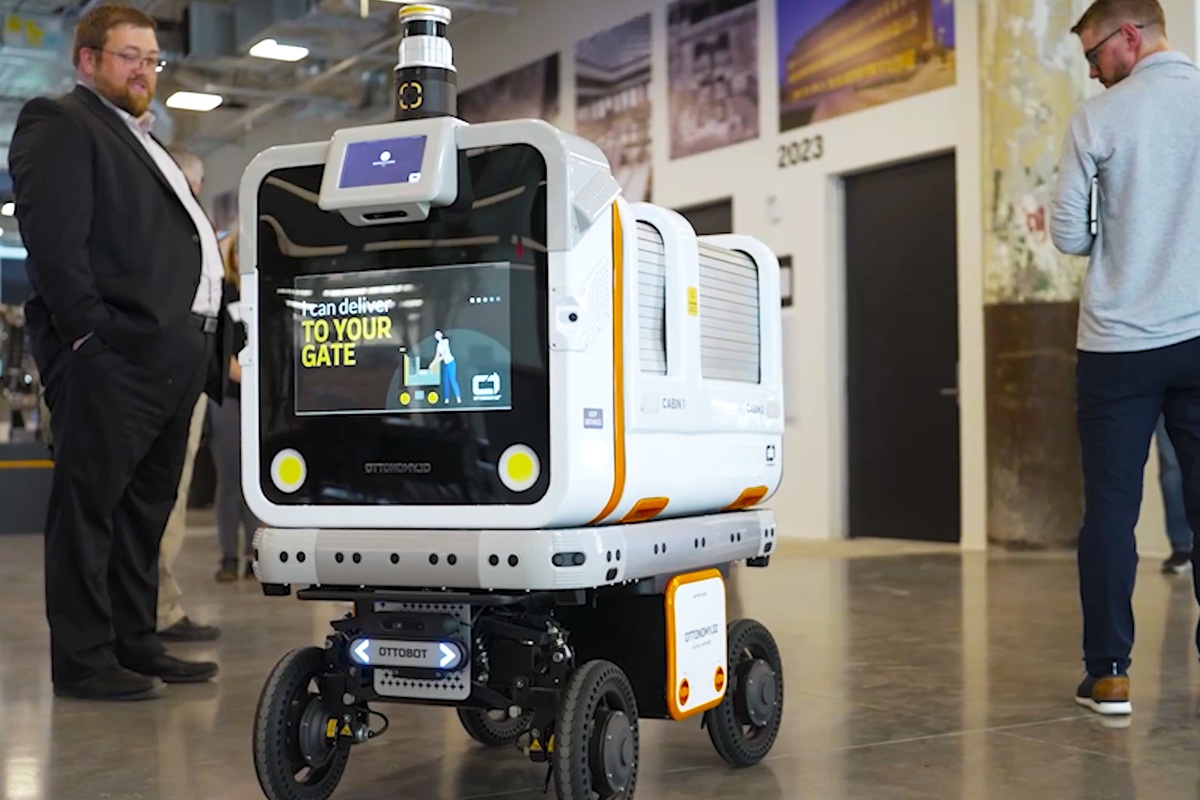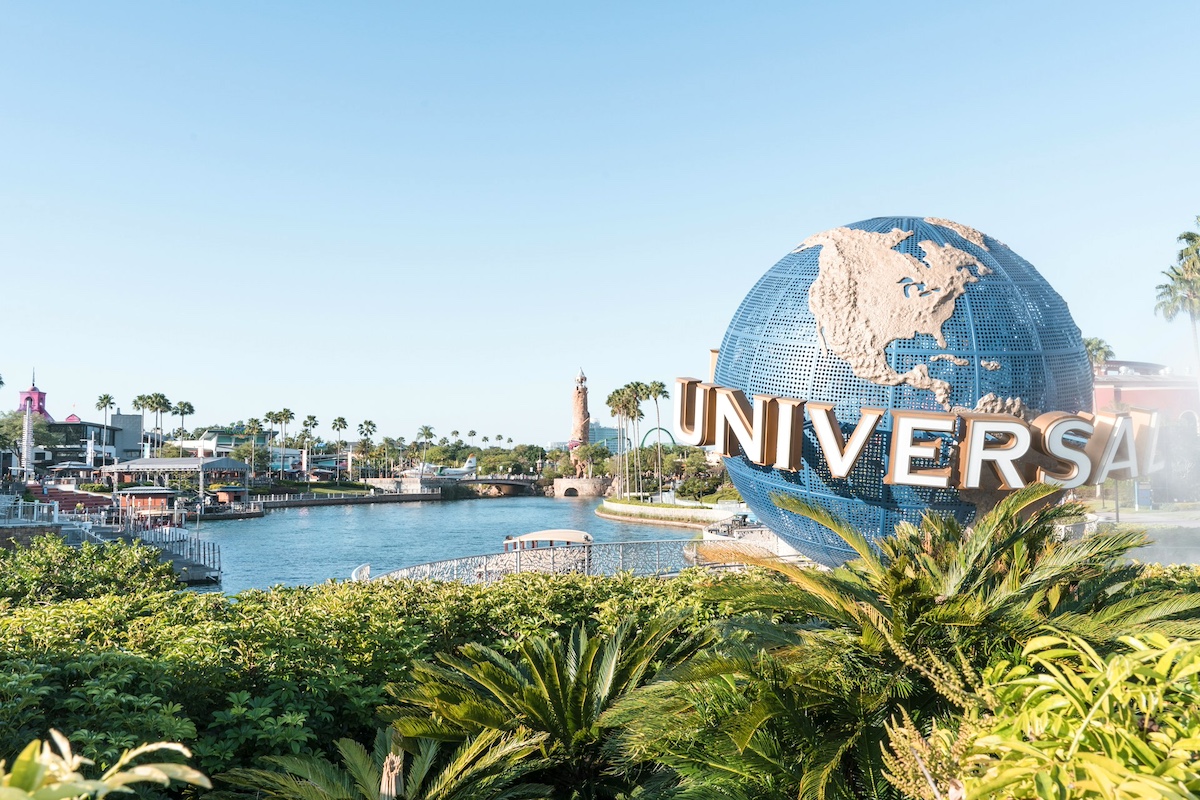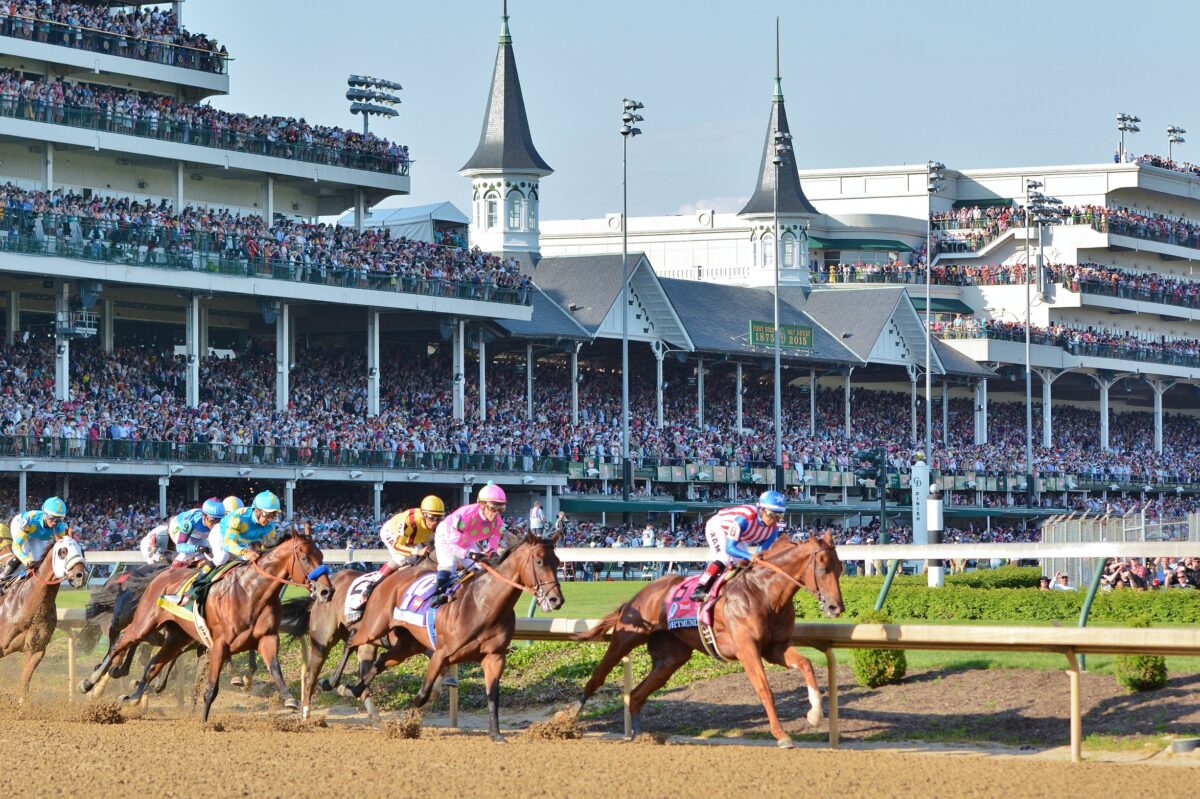Skift Take
Detroit has a solid reputation as the center of the U.S. automotive industry, but did you know that it's also a leader across multiple high-tech sectors, including electric vehicles? Thanks to these advancements and top-notch meetings infrastructure, Detroit is emerging as a top contender for conferences and business events of all kinds.
This content was created collaboratively by Visit Detroit and Skift’s branded content studio, SkiftX.
Long the center of the U.S. automotive industry, Detroit is rapidly transforming into a leading hub for technology and innovation. Behind this is a remarkable approach to urban renewal fueled by onshoring of advanced manufacturing facilities, investment in electric vehicle technology, and other developments. As a result, there are myriad opportunities for meetings and events to benefit from Detroit’s unique combination of revitalized industry, state-of-the-art technologies, progressive sustainability measures, community spirit, and a thriving culinary and arts scene.
These attributes are bolstered by a host of other advantages for meetings, including a robust transportation system, high-quality hotels and meeting venues, and a convenient location. In fact, Detroit is no more than a 90-minute flight away from 60 percent of the U.S. population. None of this will break the budget either. A recent ConsumerAffairs study named Detroit as the most affordable city in the U.S. with over 500,000 people.
Innovation & Industry: Motor City Becomes Tech Town
Metro Detroit, the place that revolutionized the auto industry during the past century, is in the midst of a new industrial building boom. Developments include 18 major new industrial projects currently underway, collectively totaling 5.4 million square feet. Along with these new builds, the city is experiencing a massive wave of repurposed spaces: Developers are finding creative new uses for old manufacturing facilities, high schools, shopping centers, and warehouses, along the former Michigan State Fairgrounds, just to name a few.
Appropriately enough, automotive companies such as Ford and Stellantis (whose 14 brands include Chrysler, Fiat, and Jeep) are among those making substantial investments in the local economy. Stellantis recently extended its Silicon-Valley-based operations by creating a new “Software Experience” development team based in Metro Detroit.
Similarly, Ford is backing a major enterprise nearing completion. The company is transforming Michigan Central Station in Detroit’s Corktown neighborhood into a multi-use complex largely devoted to mobility innovation, but also offering spaces for retail, dining, and meetings and exhibitions. The former train station — a magnificent edifice built in the 1920s and once among the grandest railway stops in the U.S. — will be surrounded by 30 acres of green spaces, open plazas, walking trails, and public art. Ford has invested over $740 million in the project so far, and the station is set to reopen this summer.


Detroit has also become a magnet for major tech companies and startups. It’s the site of new corporate offices and operations for Amazon and the location of Microsoft’s Michigan Technology Center, which opened downtown in 2016. Downtown is also home to TechTown, a locally based incubator program, and M@dison Block, an epicenter for tech startups. One reason the city is such fertile ground for tech enterprises is its intellectual capital — Metro Detroit boasts a concentration of mechanical engineers over five times the national average.
Venues: World-Class, Sustainable Convention Centers & Hotels
Huntington Place
Detroit’s largest convention center is Huntington Place, a stunning 2.4-million-square-foot venue in a central downtown location. The center is just 20 miles from the airport and affords sweeping views of the Detroit River and the Windsor, Ontario skyline across the border. Able to handle a wide range of events, the full-service facility offers five exhibit halls, 100 meeting rooms, eight banquet rooms, the 40,000-square-foot Grand Riverview Ballroom, and a 50,000-square-foot exterior plaza. There’s also a broadcast studio complete with video editing capabilities, a soundstage, and green room.
Sustainability is a high priority for Huntington Place, which has earned LEED Gold Certified status from the U.S. Green Building Council and ASTM/APEX Standard Certified status from the Green Meetings Industry Council. Not stopping there, the center has continued to lead the industry by implementing many of the UN Sustainable Development Goals.
A recent $259 million upgrade included low-flow water technology and a green living roof, while the building’s glass-enclosed design ensures abundant natural light. Other measures include energy efficient lighting and the use of grey water from the Detroit River to cool the building. The center has also implemented comprehensive recycling practices that include dedicated loading dock cages and compliance with the My Green Michigan recycling program.
The Suburban Collection Showplace
The Suburban Collection Showplace, the second largest convention venue in Metro Detroit, also combines sustainability with excellent meeting facilities. Located 20 miles northwest of downtown Detroit and adjoining the 126-room Hyatt Place Detroit Novi, the venue offers 520,000 square feet of event space that includes 32 meeting rooms, nearly 100,000 square feet of ballroom and banquet areas, and over 300,000 square feet of multi-purpose exhibition space.
The venue, which minimizes energy use through its state-of-the-art lighting system and other advanced features, works with meeting clients to ensure green practices. These include eliminating paper waste, local sourcing of food and other supplies, distributing excess food to local food banks, and using past attendance figures for determining realistic consumption needs.
Hotels
Meetings in Metro Detroit are further supported by a robust hotel inventory that includes 42,000 rooms, 5,400 of them located downtown. Chief among these is the city’s premier convention headquarters, the Detroit Marriott at the Renaissance Center — the tallest hotel in North America. Designed with floor-to-ceiling windows, the 70-story property on the Detroit International Riverwalk features expansive views from its 1,298 guest rooms and 100,000 square feet of meeting space. The property has also implemented key sustainability measures, and it’s less than a 15-minute walk from Huntington Place.
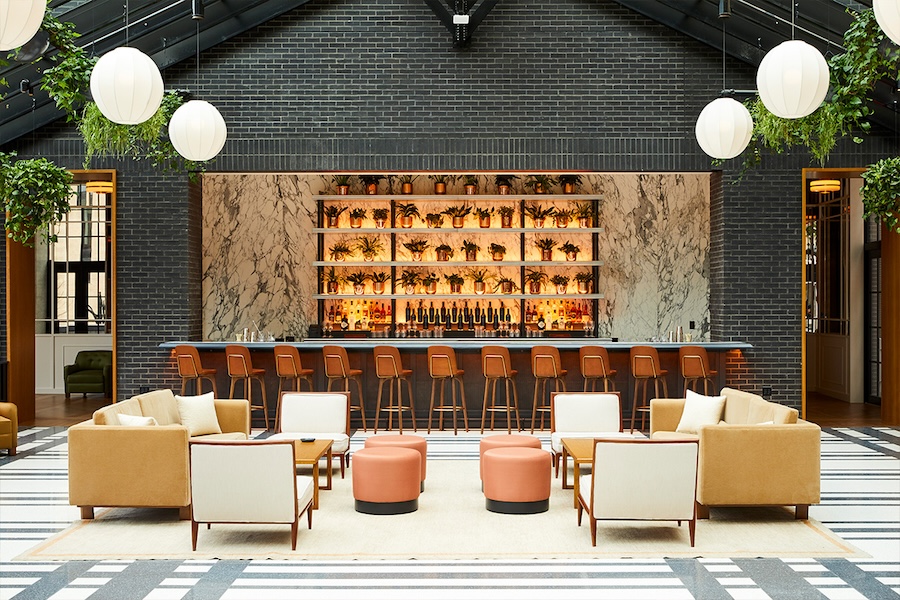

In general, getting from downtown hotels to the convention center is quick and easy, with most near the Detroit People Mover, an automated light-rail system operating on an elevated track throughout the business district.
Leisure: A Community Spirit in Music, Food, and The Arts
When it comes to after-hours entertainment or off-site venues for memorable events, Detroit offers countless options with its rich musical, culinary, and artistic heritage.
Music
Detroit is the birthplace of some of the most influential musical genres — from Motown to techno — and the hometown of such legends as Stevie Wonder, the Temptations, the Supremes, Eminem, Iggy Pop, and Lizzo, to name just a few. Two of the city’s most popular annual events are the Detroit Jazz Festival in September and the Movement Music Festival, a mecca for electronic music fans on Memorial Day weekend.
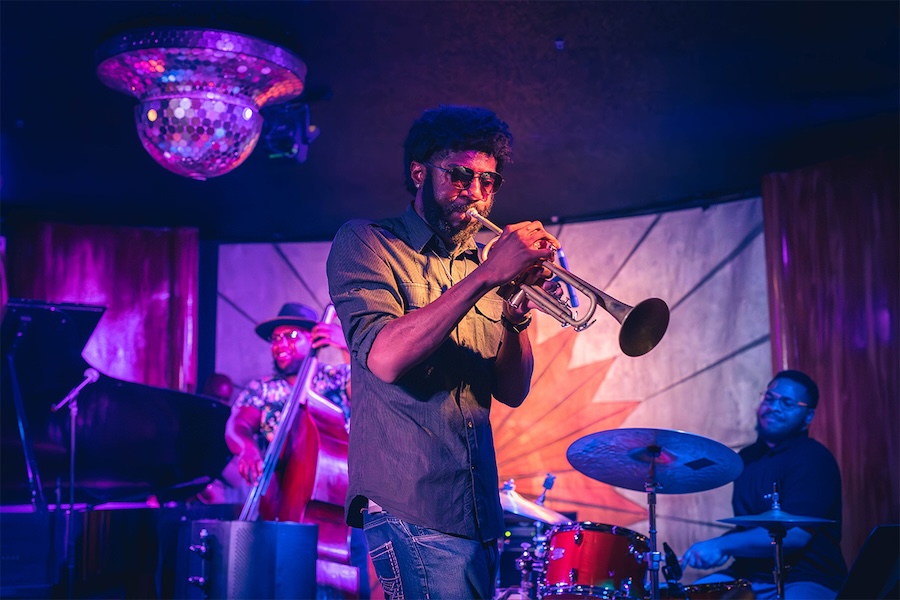

Throughout the year attendees can experience Detroit’s vibrant music scene at venues, both classic and contemporary. Among the most historic are Cliff Bell’s, a revered jazz club since 1935 that is available for private events, and Raven Lodge, the city’s oldest blues bar. The many other choices include Exodus Lounge featuring hip-hop DJ sets and a rooftop event space, El Club, named by Rolling Stone as one of the top live music venues in the U.S., and Big Pink with its warehouse dance hall.
Art and Design
Detroit, named as the first UNESCO American City of Design, is also where the visual arts thrive. Attractions include dazzling outdoor murals and other public art that visitors can enjoy during walking tours from the Detroit Institute. One of the country’s most renowned art museums, the event-friendly Detroit Institute of Arts makes an inspiring setting for receptions hosting up to 600 guests, as well as lectures and intimate gatherings. Additionally, Detroit supports one of the nation’s largest theater districts — the crown jewel being the historic Fox Theater, an opulent setting for events seating up 4,800 people.
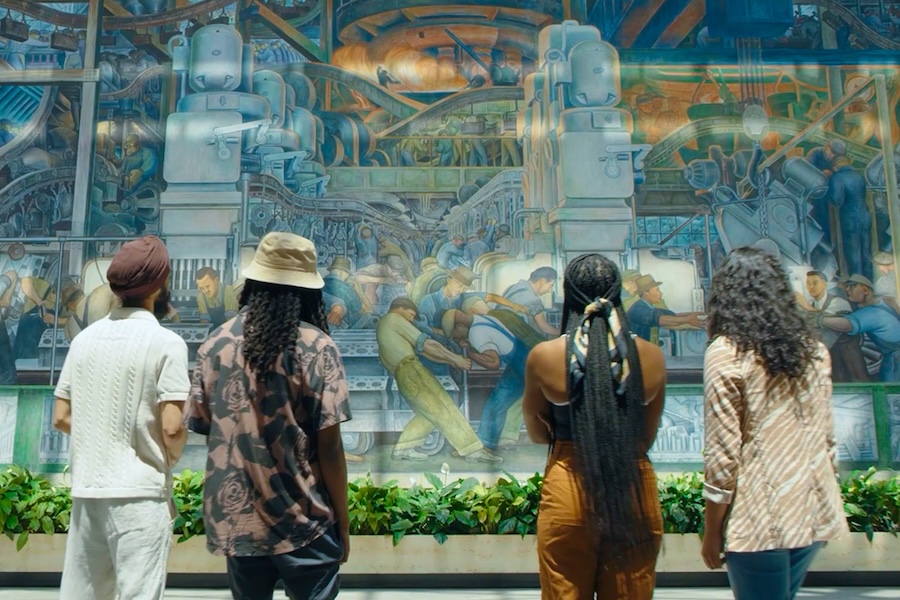

Fine Dining and Incubator Kitchens
Metro Detroit’s culinary scene, which has recently produced numerous James Beard Award national semifinalists, is a big part of the city’s innovative, can-do spirit. Eastern Public Market, the oldest and largest public market in the country, is home to Detroit Kitchen Connect, an incubator kitchen that helps food entrepreneurs start, develop, and scale a fledgling business. Other socially-minded F&B enterprises in the region are Growing Hope, a nonprofit organization that supports school garden development and farmers’ markets; and Can-Do Kalamazoo, an innovative incubator kitchen.
To learn more about everything that Detroit has to offer and book a meeting, reach out to the experts at Visit Detroit.
Did You Know?
Visit Detroit was founded in 1896, making it the world’s first convention and visitors bureau.
This content was created collaboratively by Visit Detroit and Skift’s branded content studio, SkiftX.

